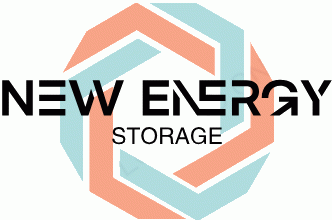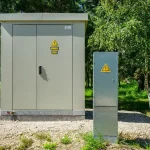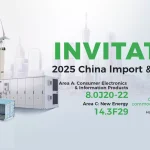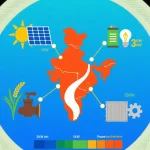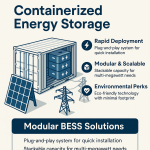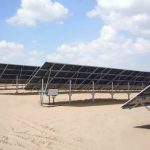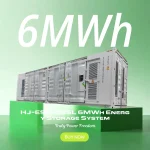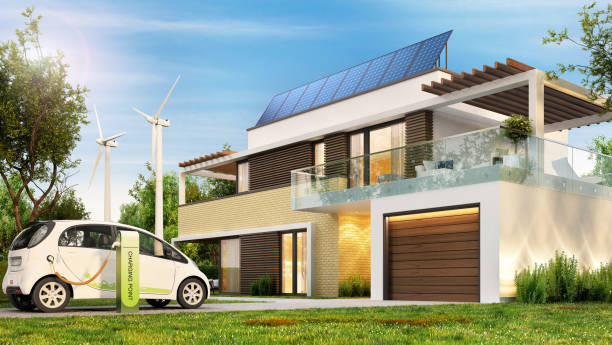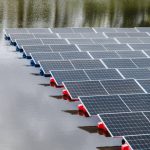As the UK’s investment in the green energy sector begins to grow, having integrated renewable energy technologies is no longer nebulous, but indispensable. Among the various solutions, the synergy between solar panels and energy storage systems is at the forefront of the national strategy. Beyond this, there are many hybrid energy cabinet innovations that are accelerating and improving the efficiency, reliability and scalability of the systems we use, thus enabling a change in the energy landscape.
The Role of Solar Panels in the UK’s Green Energy Strategy
Solar photovoltaic panels are by far one of the most readily available and widely adopted renewable energy technologies. In the United Kingdom, the availability of solar radiation and the efficiency of photovoltaic panels can significantly increase the use of solar energy for residential, commercial and industrial applications, as well as accelerating practical solar solutions.
Key Advantages of Solar Panels:
- Renewable and Clean:solar panels convert sunlight into electricity without emitting any greenhouse gases.
- Cost-Effective:With costs gradually decreasing, solar panels offer an affordable and efficient solution for reducing electricity bills.
- Scalability: Solar panels can be mounted on roofs, integrated into building facades or deployed in large-scale mega solar power plants, providing flexibility in power generation.
The UK government’s incentives and policies have further promoted the use of solar panels in a range of ways that truly promote a green, low-carbon lifestyle.
Energy Storage Systems: Ensuring Continuity and Efficiency
While solar panels can produce clean energy efficiently and quickly, their intermittent nature requires an equally efficient energy storage system to keep solar panels continuously powered. Energy storage systems (ESS) play a vital role in capturing excess power generated during peak sunlight hours and can be released for use at critical times.
Key Functions of Energy Storage Systems:
- Load Shifting:the ability of the ESS to store excess power during periods of low demand and release it during peak hours strongly reduces the strain on the grid.
- Backup Power:They provide critical backup power during grid outages, ensuring uninterrupted supply for homes and businesses.
- Grid Stability:ESS help stabilize the grid by balancing supply and demand fluctuations.
Refinements in battery technology, particularly lithium-ion batteries and emerging solid-state batteries, are significantly improving the efficiency and longevity of these energy storage systems.
Hybrid Energy Cabinets: The Next Step in System Integration
The Hybrid Energy Cabinet is an innovative solution that integrates solar panels, energy storage systems and advanced energy management systems in one compact unit. This modular design not only makes good use of the energy storage cabinet’s space usage, but also ensures seamless compatibility of each component improving the overall system’s desired performance.
Benefits of Hybrid Energy Cabinets:
- System Compatibility:Designed to work harmoniously with all types of solar panels and battery technologies.
- Enhanced Efficiency:By combining different energy storage methods, hybrid energy cabinets maximize energy output and reduce losses.
- Scalability:They can be easily expanded or parts of the hardware can be adapted to meet the energy needs of different demands.
- Ease of Installation:Pre-supported modules simplify the installation process, reducing setup time and maintenance costs.
Hybrid energy cabinets are especially helpful in urban environments where space is limited and energy demand is high.
Integration Strategies: Combining Solar Panels and Energy Storage
- Designing an Integrated System
In order to be able to achieve optimal performance, a designer has designed a system that operates the solar panels and the energy storage system as a single unit. This involves:
- Optimized Placement:ensuring that the solar panels receive the maximum amount of sunlight while installing the energy storage unit in a temperature-controlled environment.
- Synchronized system operation:using an advanced energy management system to connect and manage the solar panels, batteries and inverters together.
- Leveraging Advanced Energy Management Systems (EMS)
Modern EMS technologies enable real-time monitoring, control, and optimization of energy flows. They facilitate:
- Data-Driven Decisions: EMS collects data from solar panels and storage systems to optimize energy use and detect inefficiencies.
- Predictive Maintenance: AI-driven analytics predict potential system issues before they lead to failures.
- Automated Operations: Smart systems adjust energy distribution based on usage patterns and weather forecasts.
- Government Policy and Market Dynamics
Government support through subsidies, tax incentives, and regulatory frameworks plays a critical role in accelerating the adoption of integrated energy systems. Market dynamics indicate:
- Growing Demand: Increasing investments in renewable energy and storage solutions are reshaping the energy market.
- Policy Support: Strategic initiatives and regulatory support are driving the evolution of integrated systems.
- Future Prospects: Continued innovation is expected to enhance the performance and cost-effectiveness of these systems, paving the way for a sustainable energy future.
Advantages of an Integrated Approach in the UK
Enhancing Energy Efficiency
Integrating solar panels with energy storage systems through hybrid energy cabinets improves overall system efficiency. This integrated approach allows:
- Maximized Energy Capture: Surplus energy is stored efficiently and used during periods of low production.
- Reduced Energy Waste: Energy management systems ensure that energy is not lost in transmission or storage.
- Lower Operational Costs: By optimizing energy use, households and businesses can significantly reduce their electricity bills.
Promoting Sustainability
The combined use of solar panels and energy storage systems contributes to:
- Lower Carbon Emissions: Reduced reliance on fossil fuels leads to a smaller carbon footprint.
- Energy Independence: Users become less dependent on the grid, increasing resilience during power outages.
- Long-Term Sustainability: These systems promote a sustainable energy ecosystem, crucial for meeting global climate targets.
Future Trends in Integrated Energy Systems
As we look ahead to 2025 and beyond, several trends are set to shape the future of integrated energy systems in the UK:
- Advances in Battery Technology: Continued improvements in battery efficiency and longevity will further enhance energy storage systems.
- Integration with Smart Grids: Enhanced communication between energy storage systems and the grid will enable more dynamic and efficient energy distribution.
- Emerging Hybrid Solutions: The development of hybrid energy cabinets will facilitate the seamless integration of solar panels, batteries, and energy management systems.
- Market Expansion: With increased government support and consumer demand, the market for integrated energy solutions is expected to grow significantly.
